Forbidden men; the film director from Varese speaks about the suffering due to celibacy
It is the first work by Angelita Fiore. In her documentary film, she tells the stories of three priests that have chosen love. She has requested an audience with the Pope, and has started a crowdfunding campaign.

The documentary film, which supports the freedom to love, even if you wear a cassock, is by Angelita Fiore (see photo), 34, who is originally from Varese, but who now lives in Emilia Romagna. Over a period of five years, Angelita collected the stories of three priests. and their respective companions, who chose love and who were forced to abandon the ministry. From these stories, she has produced a work that is being shown next June, at the Bologna Biografilm Festival. It is a serious topic, and not an easy one, that the young film director tackled with determination. And she hopes to take it to Pope Francis, to sensitise the Holy Father to the issue.
This is what she told us about herself and her first film.
A crowdfunding campaign has also been started, to collect the money necessary to complete the film (€5000): http://it.ulule.com/uomini-proibiti/; anyone can make a small donation, and receive a special “recompense” in return.
Angelita, how did your passion for cinema begin, and what were your first works?
“It’s a passion I’ve always had, since I was at high school, when I began to film my first documentaries, I was 17, and was attending the Classical High School in Varese; I filmed and edited them analogically. Then, I attended the DAMS University in Bologna, and I got my degree, specialising in cinema and theatre. Over the years, I’ve produced a number of shorts myself; one on the G8 in Genoa, “Not 1 reason”, won the People’s Choice Award in the “Professione Reporter” section, at the Cuveglio Film Festival, in 2006, and was shown at various festivals and broadcast on ArcoirisTV (Sky), in 2008. Uomini Proibiti (Forbidden Men) is my first full-length film.”
In Uomini Proibiti, you speak about celibacy, about suffering in the relationships between priests and “secret” women, about the difficulties that arise in relationships that are hidden, that people are hostile to. How did you come up with this idea?
“I’ve been working on it since2006. I was thinking about love, about its meaning and about what it might mean not to experience all of its human aspects, from sexuality, to having to keep feelings hidden, which are the consequences of the celibacy imposed on priests and nuns. I put the idea away, but it often came back to me, so I decided to make it. I met women that have had relationships with priests, staying hidden, keeping it all secret. I chose three stories for the film, to talk about celibacy from various points of view. The film, which was produced by Maxman Coop and Roberta Barboni, obtained sponsorship from the Emilia-Romagna Film Commission, and support from the Film Library of Bologna and from the Centre for the Development of Audiovisual Media and Digital Innovation, in Emilia Romagna.”
You’ve even requested an audience with Pope Francis.
“Yes, but we haven’t received an answer yet. But we’re counting on it, and even if he doesn’t receive us, we’ll send him a box with the film and with all of the messages that so many people want to leave him, asking him to do away with compulsory celibacy. He’s the first Pope that has shown willingness on this matter; we’d like to be able to speak with him and make him understand how much suffering there is because of what is not dogma, as he himself has said. I’m convinced that cinema cannot change things, but can make people reflect.”
In your documentary film, you tell three stories of men and women that have personally experienced the consequences of celibacy. They’re different, painful and difficult stories. How many people around the world have had similar experiences?
“More than 120,000 priests leave the ministry to have a family, or have a secret woman. In Italy, the number is 7-8000. Everywhere, associations have been created to protect these people, many of which have supported and support my film. And then, there are the children of priests; in my film (as you can see in the trailer), there’s the testimony of Lucy, who, without prejudice, and with the spontaneity and sincerity typical of a child, gives a great lesson to everyone: it’s normal for her that her father should be a priest, she can’t see anything wrong with it, quite the opposite.”
Did you only find open doors, or did you also have difficulties in collecting the testimonies and stories?
“It wasn’t easy. Many people didn’t want to talk about themselves in front of the film camera. I can understand them, particularly in Italy, they’re very difficult topics to deal with. It’s not easy for priests, who risk being expelled from the Church, it’s not easy for their women, who risk putting their companions in difficulty. For this, I thank Anna, Fausto, Luiza, Fidelia, Federico and the others in my film who gave up so much of themselves, and who wanted to be an example for others.”
Are you a Catholic?
“I had a Catholic education, but I haven’t practised for some time. I make films, I don’t do religion, this should be made clear. I have my idea, which I think is quite clear: I’m against compulsory celibacy. But I made the film without any ideological banners.”
La community di VareseNews
Loro ne fanno già parte
Ultimi commenti
Felice su Anche Laveno rompe il silenzio su Gaza
fracode su Varese ancora in piazza per la Palestina: "Rompiamo il silenzio contro il genocidio"
Giuseppe Mantica su Un futuro nella musica per il cardiologo dell’ospedale di Gallarate Giovanni Gaudio in pensione a fine anno
Bustocco-71 su Il pericoloso gioco alla stazione Ferno-Lonate: ragazzini attraversano i binari nel tunnel
PaoloFilterfree su Dall’abbandono alla rinascita: la lunga marcia dell’ex Aermacchi
Felice su Il pericoloso gioco alla stazione Ferno-Lonate: ragazzini attraversano i binari nel tunnel



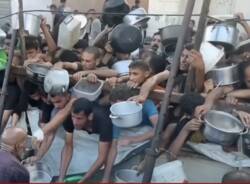


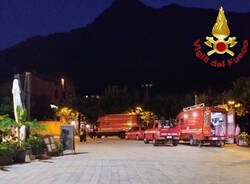
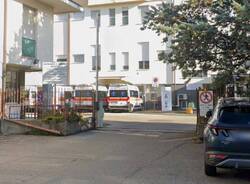

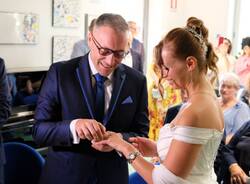

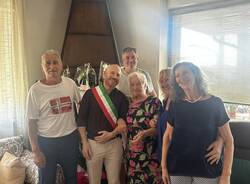




Accedi o registrati per commentare questo articolo.
L'email è richiesta ma non verrà mostrata ai visitatori. Il contenuto di questo commento esprime il pensiero dell'autore e non rappresenta la linea editoriale di VareseNews.it, che rimane autonoma e indipendente. I messaggi inclusi nei commenti non sono testi giornalistici, ma post inviati dai singoli lettori che possono essere automaticamente pubblicati senza filtro preventivo. I commenti che includano uno o più link a siti esterni verranno rimossi in automatico dal sistema.